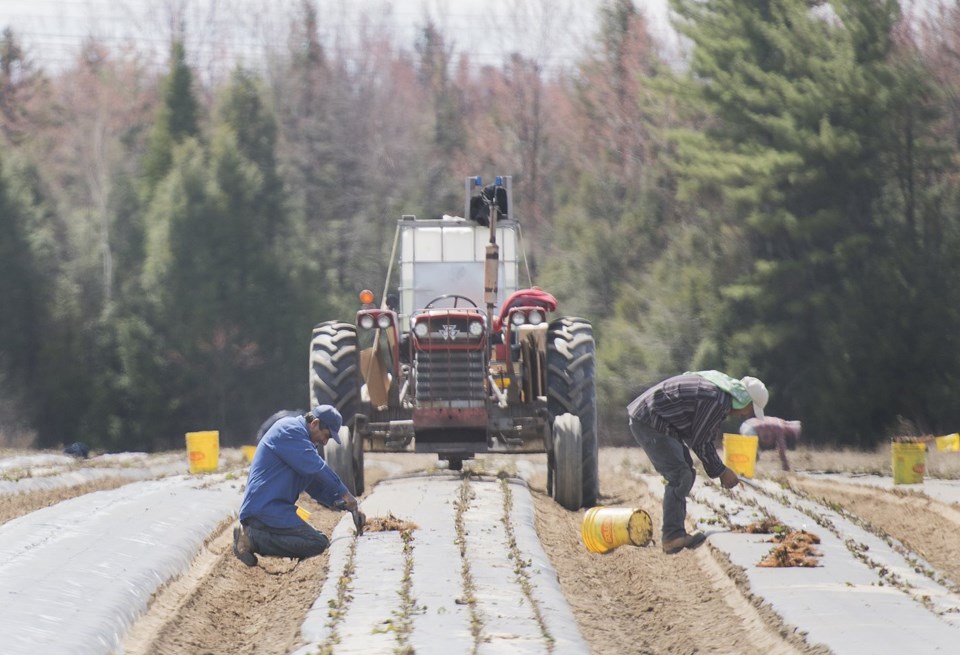OTTAWA — A recently released international report says Canada's temporary foreign worker program is a "breeding ground" for contemporary slavery.
The final report by a United Nations special rapporteur who visited Canada last year says a power imbalance prevents workers from exercising their rights.
A worker's status is dependent on a closed work permit that is specific to their employer. If an individual is fired, they may be deported from Canada.
Workers are subject to a wide range of abuses and aren't always aware of their rights, the report says.
It notes the government puts much of the responsibility for informing workers about their rights on the employer, "despite the obvious conflict of interest."
Special rapporteur Tomoya Obokata cites reports of issues including wage theft, long working hours with limited breaks and insufficient personal protective equipment.
The report also notes allegations of sexual harassment and exploitation, along with physical, emotional and verbal abuse.
Obokata also found that workers have difficulty accessing health care.
In some cases, employers prevented people from seeking treatment, the report says, with some workers denied the necessary time off, encouraged to "take painkillers or home remedies instead" or even fired.
The report notes that rules implemented in 2022 require employers to make a reasonable effort to provide workers with access to health care if they are ill or injured.
It also points out that many employers end up providing housing for their workers. That can result in overcrowding, such as 20 to 30 people sharing a single washroom, it says.
The report calls for Canada to "end labour migration arrangements that foster exploitation by creating dependency situations that tie workers to their employers" and in which employers control the worker’s housing, health care and status.
The number of permits under the program increased 88 per cent from 2019 to 2023, though Ottawa recently indicated it plans to reduce the number of such workers in Canada.
Mathis Denis, a spokesperson for Employment Minister Randy Boissonnault, said the government has increased fines for employer non-compliance under the program. He said the government levied $2.1 million in fines for violating program rules last fiscal year, up from $1.54 million issued the previous year.
He said the minister is considering increasing fees to pay for “additional integrity and processing activities,” and is looking to put in place new regulations covering employer eligibility.
This report by The Canadian Press was first published Aug. 13, 2024.
Anja Karadeglija, The Canadian Press




